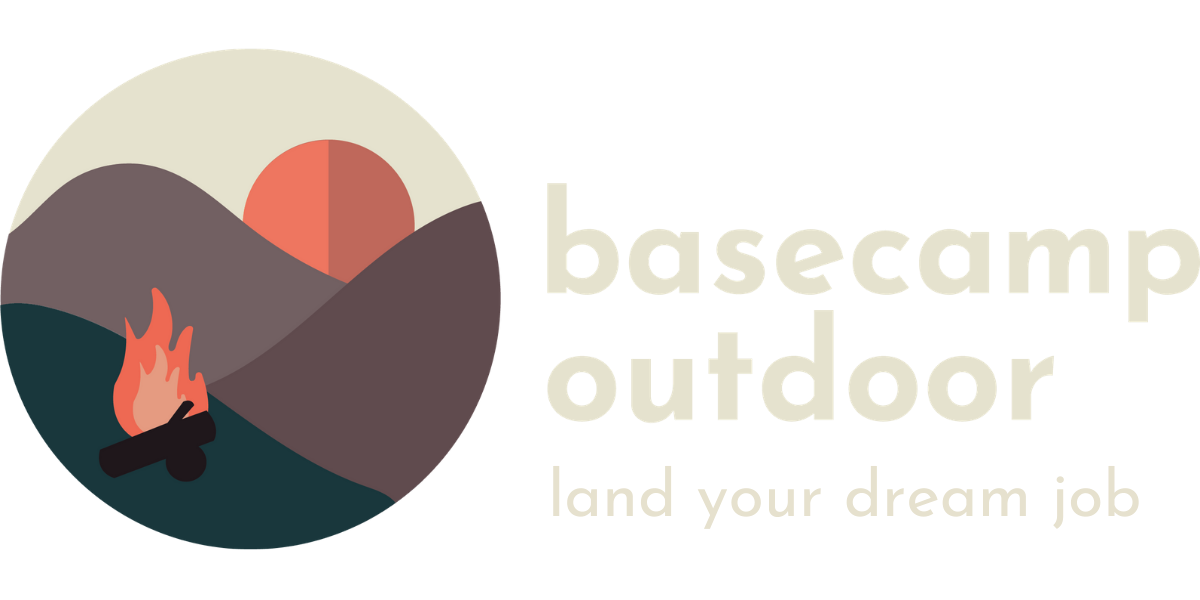Building a Year-Round Outdoor Industry Career
Building a Sustainable Year-Round Career in Outdoor Recreation: A Strategic Handbook
1.0 Introduction: Charting a Course from Seasonal Work to a Sustainable Career
Transitioning from the cyclical nature of seasonal work to a stable, year-round profession is the pivotal moment in any outdoor recreation career. This handbook frames that transition not as a simple job change, but as a strategic evolution. It requires a deliberate shift in mindset—from seeing employment as a series of disconnected seasons to viewing each role as a building block in a durable, long-term professional structure. Success in this industry is not accidental; it is engineered.
The core challenge for many outdoor professionals is navigating the inherent gaps between peak seasons. However, this challenge presents a significant opportunity. By executing a focused approach to skill development, building a diverse portfolio of expertise, and cultivating a deep understanding of the outdoor recreation economy, you can transform seasonal instability into a platform for indispensable, year-round value. The path forward is paved with intentionality and a commitment to continuous growth.
This guide provides a strategic framework for achieving that stability. To forge your year-round future, we will dissect the three primary pathways: leveraging the Multi-Season Approach to build an unshakeable operational foundation; executing a deliberate campaign of Proactive Professional Development to architect your ascent; and mastering the Entrepreneurial Pathway to achieve ultimate career autonomy.
2.0 The Foundational Strategy: Mastering the Multi-Season Approach
The Multi-Season Approach is the fundamental building block for a sustainable year-round career in outdoor recreation. Its strategic importance cannot be overstated; by mastering roles across different seasons, you develop a comprehensive and versatile skill set that makes you an indispensable asset to any operation. This approach moves you from being a temporary specialist to a holistic professional who understands the full operational cycle of the industry, creating a direct bridge to permanent employment.
Mapping the Seasonal Employment Landscape
Seasonal Focus
Typical Roles & Responsibilities
Strategic Value
Summer
Leading hiking/climbing expeditions, managing outdoor education programs, trail building, guiding water sports.
Forges field leadership and decision-making under pressure, forming the credibility backbone of your professional reputation.
Winter
Ski instruction or patrol, snowsports equipment maintenance, guest service, winter adventure programming.
Cultivates mastery of high-stakes technical skills and client management in demanding conditions, demonstrating operational resilience.
Shoulder Seasons
Equipment maintenance/repair, guide training, facility preparation, retail/rental operations.
Develops a crucial understanding of an operation’s financial viability, revealing the hidden logistics and budget decisions that drive profitability.
Skill Synergy: Building a Comprehensive Profile
The true power of the multi-season approach lies in skill synergy—the way expertise from one season directly complements and enhances your effectiveness in another. Consider a lead winter ski instructor who excels at de-escalating tense situations with clients on a crowded slope. This same high-stakes emotional intelligence becomes a powerful asset when managing group dynamics and risk on a multi-day summer backpacking trip in unpredictable weather, directly impacting client retention and premium reviews. Each season is an opportunity to build another layer of complementary expertise, creating a professional profile that is far more valuable than the sum of its parts.
Pathways to Year-Round Roles
A multi-season background provides the ideal foundation for transitioning into stable, permanent roles. Your diverse experience demonstrates a deep commitment to the industry and an understanding of its complete business cycle.
Technical equipment inspection: Experience maintaining gear during both summer and winter seasons makes you the natural fit for a year-round role overseeing equipment safety and inventory.
Sales and marketing: Having worked directly with clients across various activities gives you unparalleled insight into customer needs, making you highly effective in a role dedicated to promoting an organization's offerings.
Program development: A background in leading different seasonal activities equips you with the practical knowledge needed to design, develop, and manage new, innovative programming that can attract clients throughout the year.
Guest experience, Food service, and Administration: These roles demand a holistic understanding of an operation. Multi-season professionals have seen the business from multiple angles and are better equipped to contribute to its overall success.
This foundational experience is the launchpad for a sustainable career, but long-term success requires a proactive and continuous commitment to architecting your professional growth.
3.0 Architecting Your Advancement: A Blueprint for Professional Development
Mastering multiple seasons builds your foundation, but continuous professional development is the engine that drives career momentum and ensures long-term sustainability. It is the most critical factor in moving beyond entry-level seasonal work and into positions of leadership, influence, and stability. This blueprint is not a checklist but an interconnected system; executing these strategies in concert will create compounding returns on your career.
The Career Sustainability Blueprint
Advanced Certifications Obtaining progressively advanced certifications aligned with industry standards is mission-critical for establishing credibility and qualifying for higher-level roles. These credentials validate your expertise and signal an unwavering commitment to professional excellence.
Complementary Off-Season Skills Leverage slower periods to develop skills that complement your peak-season work. This strategic approach not only fills potential resume gaps but creates new income streams, enhancing your financial resilience.
Business and Management Capabilities Transitioning from a field guide to a program director requires a distinct leadership toolkit. Invest in formal training in business, finance, and management to acquire the acumen necessary to take on leadership responsibilities and drive an organization's strategic goals.
Multiple Income Streams Mitigate the risks of a cyclical industry by cultivating a diverse professional portfolio. By combining in-person guiding with emerging opportunities like online content creation or equipment consulting, you can build multiple income streams and increase your professional autonomy.
Expert Specialization Establish yourself as a recognized expert in a specific niche to create unique, high-value opportunities. Whether in a particular technical skill, a type of terrain, or a specific client demographic, deep specialization makes you a sought-after, premium resource.
Technical and Safety Proficiency Maintaining current technical skills and safety certifications is non-negotiable. The outdoor industry is built on a foundation of trust and safety; keeping your credentials current is the bedrock of professional viability and risk management.
Strategic Networking Build strong relationships that span seasonal and organizational boundaries. A robust professional network provides access to market intelligence, mentorship, and unadvertised opportunities that are invisible to others.
Understanding Business Cycles Develop a sophisticated understanding of the economic rhythms and trends of different outdoor activities. This knowledge allows you to anticipate demand and strategically pivot your skills toward high-margin, emerging sectors while others are still focused on saturated markets.
This disciplined approach to growth is the key to unlocking advanced opportunities, including the ultimate application of your skills: building your own enterprise.
4.0 The Entrepreneurial Pathway: Building Your Own Year-Round Enterprise
For many seasoned outdoor professionals, the entrepreneurial path represents the ultimate expression of career autonomy. This pathway is the capstone of a career, built upon the foundation of the multi-season and professional development strategies previously discussed. Success here requires a strategic fusion of deep, field-tested outdoor expertise—often developed through years of industry experience—with sharp, modern business acumen. It is the rewarding but demanding route of the business builder.
Milestones in Business Development
Building a resilient, year-round outdoor enterprise involves a series of deliberate strategic steps:
Validate the Model and Build Brand Equity: Anchor your business in a core, high-quality offering. This initial focus is critical for establishing market reputation, refining operations, and creating a loyal customer base from which to expand.
Add Complementary Services: Strategically expand your offerings to extend your operating season. Analyze market gaps and develop services that capture revenue during shoulder seasons or appeal to different client segments.
Develop Passive Income Streams: Engineer revenue sources that are not directly tied to your time, such as equipment rentals or the sale of digital assets like training videos or guides. This diversifies your income architecture and builds financial stability.
Build a Team to Support Year-Round Operations: To scale beyond a solo operation, you must build a skilled and reliable team. This allows you to delegate responsibilities, increase capacity, and ensure consistent, high-quality service delivery.
Mitigate Revenue Volatility: Engineer unique shoulder-season programs to smooth out cyclical revenue dips. This demonstrates market leadership and creates a more resilient financial foundation for the business.
Establish Partnerships with Complementary Businesses: Forge strategic alliances with other businesses (e.g., lodging, restaurants, other guide services) to create package deals and cross-promotional opportunities that enhance customer value and expand your market reach.
Develop Risk Management and Insurance Strategies: A professional operation requires robust risk management protocols and comprehensive insurance coverage. This protects your clients, your team, and the long-term viability of your enterprise.
Integrate Both In-Person and Virtual Offerings: Leverage technology to expand your reach. Combining traditional in-person experiences with virtual offerings like online workshops or technical training can engage clients year-round and unlock new revenue channels.
Integrating Modern Business Acumen
A successful modern outdoor business requires more than just excellent field skills. It is critical to integrate contemporary business practices into your operational DNA. This includes developing proficiency in digital marketing to reach and attract customers, implementing customer relationship management (CRM) systems to build lasting client loyalty, and adopting sustainable business models that ensure both ecological and economic longevity.
From mastering seasonal roles to building a business, each step on this journey requires intentional effort and a strategic vision for the future.
5.0 Conclusion: Forging Your Year-Round Future
The journey from seasonal employment to a sustainable, year-round career in the outdoor recreation industry is a deliberate and achievable pursuit. This handbook has outlined three core pathways to guide this evolution: mastering the multi-season approach to build a versatile and indispensable foundation; committing to a disciplined program of proactive professional development to accelerate your advancement; and, for the most ambitious, pursuing the entrepreneurial path to build an enterprise that provides ultimate autonomy and stability.
The central theme that connects these strategies is clear: a lasting and rewarding career in the outdoors is not a matter of chance, but the direct result of continuous strategic effort. It is forged through intentional skill acquisition, dedicated networking, and a deep understanding of the industry's economic landscape. The most resilient professionals are hybrid experts, skillfully blending traditional field roles with emerging opportunities in online content, technical training, and consulting.
Take ownership of your trajectory, apply these principles with relentless focus, and engineer a career as durable and rewarding as the landscapes you work in.


